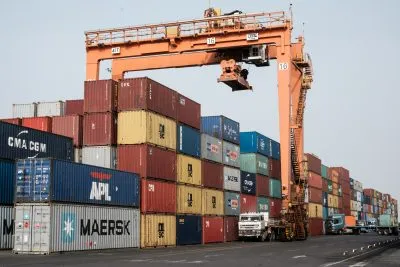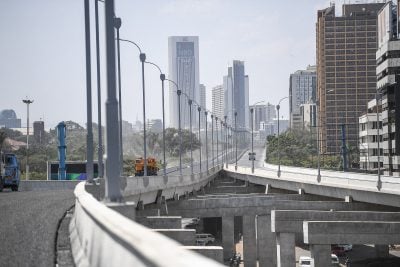Crime and policing in South Africa has been under international scrutiny over the past few years, with high-profile cases attracting the roving media circus.
Domestically, concerns about high crime rates have led many companies and individuals turn to private security.
The regulator’s register of private security providers holds more than a million names; about 450,000 people are in active employment as car guards to armed security details – more than double the number of policemen in the South African Police Service (SAPS).
The sheer size of the private security industry and its growing role in society is concerning the government, which has been trying to pass a tougher law to corral the sector and bring it under majority South African ownership. However, the move runs counter to World Trade Organisation (WTO) rules, putting the government on course for collision with both domestic and international opponents.
For over a year, the Private Security Industry Regulation Amendment Bill of 2012 has been awaiting presidential signature and enactment. It has been on Jacob Zuma’s desk since March 2014 when it was passed through both houses of parliament, but the President has sent the proposed law back for drafting three times.
The bill provides that a security business may only be registered if “at least 51% of the ownership and control is exercised by South African citizens”. It gives the minister of police the authority to “take into account the security interests of the Republic, prescribe by regulation a different percentage of ownership and control in respect of different categories” of security businesses. The minister will have discretionary powers to exempt certain businesses.
If signed, the law may put South Africa in breach of its WTO obligations to permit foreign ownership of companies, under the 1995 General Agreement on Trade in Services (GATS). Under the agreement, countries committed to allow free trade and movement of services to match their commitments to remove protectionist barriers in the movement of merchandise.
Speaking at a private security services conference in March, police minister Nathi Nhleko defended the bill.
“The provision does not prohibit foreign involvement in the private security industry – it only restricts foreign involvement to 49%,” he said. “Some countries ban foreign ownership outright.”
Analysts are not so sure. Under GATS, South Africa undertook to not impose any terms, limitations and conditions on the participation of foreign capital in private security companies in South Africa.
“However,” observes JB Cronjé, a researcher at the Southern African Trade Law Centre (Tralac), “this is exactly what the Private Security Industry Regulation Amendment Bill proposes to do by limiting foreign ownership and control of private security companies to a maximum of 49%. The Bill also gives the Minister discretionary power to determine diverse ownership and control percentages for different market segments.”
The minister needs to prescribe how he intends to verify the ownership and control of security businesses under the new law, Cronjé says.
Tralac believes that the provisions are in direct conflict with South Africa’s GATS commitments, and passing the bill could have consequences under WTO law. The police ministry contends that the private security industry poses a threat to national security through its intelligence-gathering operations.
“Some of these companies have strong links outside South Africa and it would be unrealistic not to guard against these potential dangers,” Nhleko said in his speech in March.
Legal expert Peter Leon maintains that the bill creates a system of compulsory indigenisation of private security companies with no compensation. Foreign-owned security companies, including G4S, Securitas and ADT, would be subjected to compulsory expropriation without compensation if the bill is passed into law.
“You can’t pick and choose when it comes to the WTO,” says Leon. “It’s a set of agreements that South Africa signed up to. GATS does provide for certain general exceptions, but they… must not lead to arbitrary inhibition of trade.”
Whatever the government decides will probably impact on the region as a whole.
“South Africa’s partners in the region are watching closely and emulating what we do,” says trade analyst Peter Draper. “Markets in Namibia, Zambia and others are becoming closed to South Africa because they see the policies we are putting in place. Other African countries are beginning to emulate South Africa’s restrictive practices and the country would be locked out of investment destinations due to such policies.”
Want to continue reading? Subscribe today.
You've read all your free articles for this month! Subscribe now to enjoy full access to our content.
Digital Monthly
£8.00 / month
Receive full unlimited access to our articles, opinions, podcasts and more.
Digital Yearly
£70.00 / year
Our best value offer - save £26 and gain access to all of our digital content for an entire year!
 Sign in with Google
Sign in with Google 



